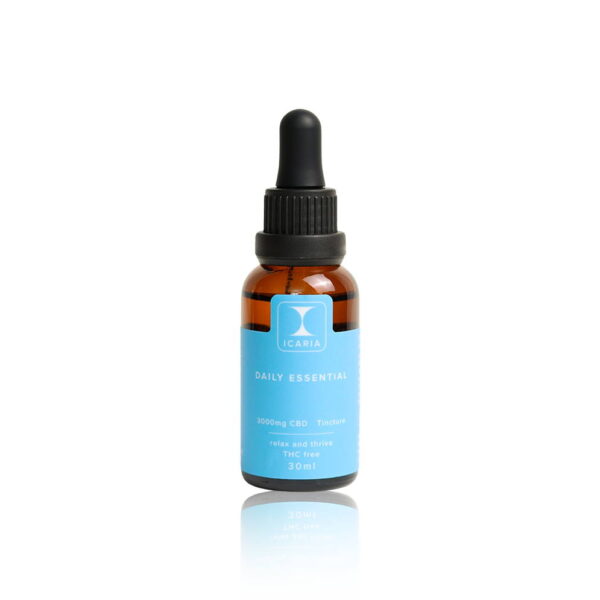Hormones play a crucial role in our bodies, influencing a wide range of functions that keep us healthy and balanced. For women, maintaining hormonal balance is essential for overall well-being, affecting everything from mood and energy levels to reproductive health. In this comprehensive guide, we will delve into the world of hormones, explore their significance, identify key hormones for women, understand the causes and consequences of hormonal imbalance, and provide actionable steps to achieve and maintain hormonal balance.
What Are Hormones and What Is Their Role?
Hormones are chemical messengers produced by glands in the endocrine system, including the pituitary, thyroid, adrenal glands, and ovaries. These powerful substances travel through the bloodstream to tissues and organs, regulating various bodily functions. Hormones control metabolism, growth and development, mood, sexual function, reproduction, and even sleep. The endocrine system works in delicate harmony to ensure that our bodies function optimally.
The intricate dance of hormones is vital for maintaining homeostasis, the body’s stable internal environment. When hormones are in balance, we feel energetic, focused, and emotionally stable. Conversely, hormonal imbalances can lead to a host of physical and emotional issues, disrupting our quality of life.
The Most Important Hormones for Women
Several hormones play a pivotal role in women’s health. Understanding these hormones can help us recognize their importance and how they impact our bodies.
- Estrogen: Often referred to as the primary female sex hormone, estrogen is crucial for reproductive health. It regulates the menstrual cycle, supports pregnancy, and affects bone density, skin health, and cardiovascular function.
- Progesterone: This hormone works in tandem with estrogen to regulate the menstrual cycle and support pregnancy. It also helps maintain a calm and balanced mood, reducing anxiety and promoting restful sleep.
- Testosterone: While often associated with men, testosterone is also essential for women. It contributes to muscle strength, libido, energy levels, and overall vitality.
- Thyroid Hormones (T3 and T4): Produced by the thyroid gland, these hormones regulate metabolism, energy production, and body temperature. They also influence heart rate, digestion, and cognitive function.
- Cortisol: Known as the stress hormone, cortisol is produced by the adrenal glands. It helps the body respond to stress, regulate blood sugar levels, and reduce inflammation. Chronic stress can lead to elevated cortisol levels, which can disrupt hormonal balance.
- Insulin: Produced by the pancreas, insulin regulates blood sugar levels by facilitating the uptake of glucose into cells. Insulin resistance can lead to conditions like polycystic ovary syndrome (PCOS) and type 2 diabetes, both of which can affect hormonal balance.
- Oxytocin: Often called the “love hormone,” oxytocin is involved in social bonding, childbirth, and lactation. It promotes feelings of trust, empathy, and relaxation.
Hormonal Imbalance: Causes and Consequences
Hormonal imbalance occurs when there is too much or too little of a hormone in the bloodstream. This can result from various factors, including lifestyle, diet, stress, medical conditions, and environmental toxins.
Causes of Hormonal Imbalance:
- Stress: Chronic stress triggers the release of cortisol, which can disrupt the balance of other hormones. Prolonged stress can lead to adrenal fatigue, affecting the production of sex hormones and thyroid hormones.
- Poor Diet: A diet high in processed foods, sugar, and unhealthy fats can contribute to insulin resistance and inflammation, disrupting hormonal balance. Nutrient deficiencies, such as low levels of magnesium, zinc, and vitamin D, can also affect hormone production.
- Lack of Sleep: Inadequate sleep affects the production of hormones like cortisol, insulin, and ghrelin (which regulates hunger). Sleep disturbances can lead to weight gain, increased stress, and hormonal imbalances.
- Sedentary Lifestyle: Regular physical activity helps regulate hormones like insulin, cortisol, and endorphins. A lack of exercise can contribute to weight gain, insulin resistance, and mood disorders.
- Medical Conditions: Conditions such as PCOS, thyroid disorders, adrenal insufficiency, and diabetes can cause hormonal imbalances. These conditions often require medical intervention to manage hormone levels.
- Environmental Toxins: Exposure to endocrine-disrupting chemicals (EDCs) found in plastics, pesticides, and personal care products can interfere with hormone production and function.
Consequences of Hormonal Imbalance:
- Mood Swings and Anxiety: Imbalances in estrogen, progesterone, and cortisol can lead to mood swings, irritability, and anxiety. Women may experience heightened emotional sensitivity and stress.
- Weight Gain: Hormonal imbalances, particularly involving insulin and cortisol, can lead to weight gain and difficulty losing weight. Abdominal fat accumulation is a common symptom.
- Fatigue and Low Energy: Thyroid hormone imbalances, adrenal fatigue, and insulin resistance can result in persistent fatigue and low energy levels, making daily activities challenging.
- Irregular Menstrual Cycles: Disruptions in estrogen and progesterone levels can cause irregular periods, heavy bleeding, or missed periods. This can affect fertility and reproductive health.
- Skin and Hair Issues: Hormonal imbalances can lead to acne, dry skin, hair loss, and unwanted hair growth. These issues often stem from fluctuations in androgens (male hormones) and insulin.
- Sleep Disturbances: Imbalances in cortisol, melatonin, and other hormones can interfere with sleep patterns, leading to insomnia or restless sleep.
How to Achieve Hormonal Balance?
Achieving and maintaining hormonal balance involves a holistic approach that addresses lifestyle, diet, stress management, and overall wellness. Here are actionable steps to help you achieve hormonal balance:
- Adopt a Balanced Diet: Focus on whole, nutrient-dense foods that support hormone production and regulation. Include plenty of fruits, vegetables, lean proteins, healthy fats (such as avocados, nuts, and seeds), and complex carbohydrates (like whole grains and legumes). Avoid processed foods, sugary snacks, and excessive caffeine and alcohol.
- Prioritize Sleep: Aim for 7-9 hours of quality sleep each night. Establish a consistent sleep schedule, create a relaxing bedtime routine, and create a sleep-friendly environment by reducing noise and light.
- Manage Stress: Incorporate stress-reducing practices into your daily routine, such as meditation, yoga, deep breathing exercises, and spending time in nature. These practices can help lower cortisol levels and promote overall well-being.
- Regular Exercise: Engage in regular physical activity to support hormone regulation and overall health. Aim for a mix of cardio, strength training, and flexibility exercises. Activities like walking, running, weightlifting, and yoga can be beneficial.
- Stay Hydrated: Proper hydration is essential for hormone transport and overall health. Aim to drink at least 8 glasses of water per day, and more if you are physically active or live in a hot climate.
- Limit Exposure to Toxins: Reduce exposure to endocrine-disrupting chemicals by choosing natural and organic personal care products, using glass or stainless steel containers instead of plastic, and opting for organic produce when possible.
- Nutritional Supplements: Consider taking supplements to support hormone balance, such as omega-3 fatty acids, magnesium, vitamin D, and B vitamins. Consult with a healthcare professional before starting any new supplements.
- Maintain a Healthy Weight: Achieving and maintaining a healthy weight can help regulate hormones like insulin and estrogen. Focus on a balanced diet and regular exercise to achieve your weight goals.
- Monitor Menstrual Cycle: Keep track of your menstrual cycle to identify any irregularities or changes. Apps and journals can help you monitor your cycle and provide valuable information for healthcare providers.
- Seek Medical Advice: If you suspect a hormonal imbalance, consult with a healthcare professional for proper diagnosis and treatment. Hormonal tests, such as blood or saliva tests, can help identify specific imbalances and guide appropriate interventions.
Conclusion
Hormonal balance is crucial for women’s overall health and well-being. Understanding the role of hormones, recognizing the signs of imbalance, and taking proactive steps to achieve and maintain equilibrium can significantly enhance your quality of life. By adopting a holistic approach that includes a balanced diet, regular exercise, stress management, and mindful living, you can support your body’s natural ability to maintain hormonal harmony. Remember, achieving hormonal balance is a journey that requires patience and consistency, but the rewards of feeling vibrant, energetic, and emotionally stable are well worth the effort.







